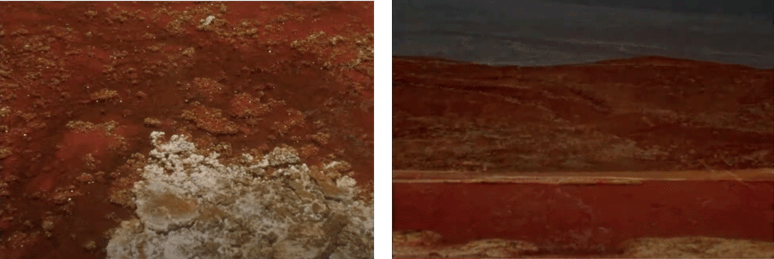Malena Szlam is an artist filmmaker based in Montreal, Canada. Much of her work focuses on the intersection between performance, installation and film while tackling our relationship with the natural world.

Szlam tells Mice Magazine in an interview that her Chilean upbringing and arts education at Universidad de Artes y Ciencias Sociales formed the foundation for her interest in filmmaking and photography. She first began experimenting with the materiality of light, the perceptual difference between a still and a moving image and different artisanal analogue film techniques.
“Currently, film is how I explore relationships between the natural world, human perception and intuition. I try to connect how I observe to an intuitive way of filming, capturing traces of what occurs in present time; it is a meditative experience,” she remarks.
This focus on representing the natural world in an intuitive, critical way is present in her short film, “Altiplano”. Released in 2018, the work is an experimental landscape film set in Altiplano—a vast plateau in the Andean Mountains in the centre of Latin America. It spans Bolivia, Peru and Chile, and is dominated by active volcanoes. The film is set over a soundscape generated, according to its IMDB page, by infrasound recordings of volcanoes, geysers, Chilean blue whales and more.
The resulting audio-video experience is foreboding and chilling. The blended, superimposed frames featuring salt flats, volcanic deserts and coloured lakes transport viewers to a seemingly otherworldly, fantastical planet. Altiplano’s geography comes alive to the lyrical heartbeat-like rhythms of the soundscape and pulsating water movements. Szlam plays with colour and saturation—depicting the rivers of Altiplano as running red with blood.

Altiplano has been the locus of mining and exploitative resource extraction for centuries, with many mining practices deeply rooted in colonialism. When we consider the film in this context, an anti-colonial critique of the impacts of human activity and climate change emerges.
“Located at the heart of a natural ecosystem threatened by a century of saltpeter and nitrate mining practices, and recent geothermic exploitation, Altiplano reveals an ancient land standing witness to all that is, was, and will be,” Szlam explains.
The United Nations Sustainable Development Goal no. 15 focuses on Life on Land. In particular, it addresses the kinds of human activities which alter and threaten ecosystems and the natural world. In the same vein, Altiplano urges viewers to reflect on the costs of resource extraction on the living, breathing landscape itself. Moreover, considering that Altiplano is made up of the traditional lands of the Atacameño, Aymara, and Calchaquí-Diaguit peoples, we must approach this sustainable development goal with a critical lens addressing the disproportionate effects of land loss and displacement on Indigenous people.
In 2019, Altiplano won the categories of “Best Experimental Short Film” and “Best Mention” at the Melbourne International Film Festival and the International Documentary Film Festival of Navarra Punto de Vista. See more of Malena Szlam’s work here.
